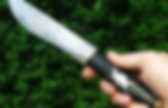

Magick. Magic most commonly refers to: Magic may also refer to: Aviation[edit] DTA Magic, a French ultralight trike wingEurodisplay SR-01 Magic, a Czech ultralight aircraft Computing[edit] Film and television[edit] Literature[edit] Music[edit] Albums[edit] Songs[edit] Nautical[edit] Radio[edit] Sorted by frequency, then by city: Canada[edit] CIMJ-FM (Majic 106.1), in Guelph, CanadaCJMJ-FM (Magic 100.3), in Ottawa, Ontario, CanadaCJMK-FM (Magic 98.3), in Saskatoon, Saskatchewan, CanadaCJUK-FM (Magic 99.9), in Thunder Bay, Ontario, Canada United States[edit] Elsewhere[edit] Sports[edit] Magic Johnson (born 1959), American basketball player and businessmanOrlando Magic, a basketball teamWaikato Bay of Plenty Magic, a netball team Technology[edit] Other uses[edit] See also[edit] Witchcraft. The belief in and the practice of magic has been present since the earliest human cultures and continues to have an important religious and medicinal role in many cultures today.[1] "Magic is central not only in 'primitive' societies but in 'high cultural' societies as well...
"[2] The concept of witchcraft as harmful is often treated as a cultural ideology providing a scapegoat for human misfortune.[3][4] This was particularly the case in the early modern period of Europe where witchcraft came to be seen as part of a vast diabolical conspiracy of individuals in league with the Devil undermining Christianity, eventually leading to large-scale witch-hunts, especially in Protestant Europe. Etymology[edit] From the Old English wiccecræft, compound of "wicce" ("witch") and "cræft" ("craft").[7] Definitions[edit] As in anthropology, European witchcraft is seen by historians as an ideology for explaining misfortune; however, this ideology manifested in diverse ways. Demonology[edit] By region[edit] Magic (paranormal) Magic or sorcery is an attempt to understand, experience and influence the world using rituals, symbols, actions, gestures and language.[1][2][3][4] Modern Western magicians generally state magic's primary purpose to be personal spiritual growth.[5] Modern theories of magic may see it as the result of a universal sympathy where some act can produce a result somewhere else, or as a collaboration with spirits who cause the effect.[6] The belief in and the practice of magic has been present since the earliest human cultures and continues to have an important religious and medicinal role in many cultures today.[7][8] Magic is often viewed with suspicion by the wider community, and is sometimes practiced in isolation and secrecy.[4] The word "magic" derives via Latin magicus from the Greek adjective magikos (μαγικός) used in reference to the "magical" arts of the Persian Magicians (Greek: magoi, singular mágos, μάγος), the Zoroastrian astrologer priests of the ancient Persian Empire.
Basics. This page covers some basics: what Paganism is, what religious witchcraft and Wicca are, and some other topics that will help you get your bearing. Take a look around the site if you’ve got questions (the tabs across the top link to all the index pages), but if you still can’t find an answer, you can email me through the contact form. I like questions, so chances are good you’ll get an answer. Before you start, here are some good things to know. What is Paganism? The first question for many people is “What is Paganism anyway?” The short version is that Paganism is the umbrella term for a group of religions that don’t necessarily have a whole lot in common. What is Wicca? Other topics: How do Pagans look at deity? Divination. This man in Rhumsiki, Cameroon attempts to tell the future by interpreting the changes in position of various objects as caused by a freshwater crab through the practice of nggàm[1] Divination (from Latin divinare "to foresee, to be inspired by a god",[2] related to divinus, divine) is the attempt to gain insight into a question or situation by way of an occultic, standardized process or ritual.[3] Used in various forms throughout history, diviners ascertain their interpretations of how a querent should proceed by reading signs, events, or omens, or through alleged contact with a supernatural agency.
Divination can be seen as a systematic method with which to organize what appear to be disjointed, random facets of existence such that they provide insight into a problem at hand. Divination is dismissed by the scientific community and skeptics as being superstition. Categories[edit] Psychologist Julian Jaynes categorized divination into the following four types:[citation needed] D.